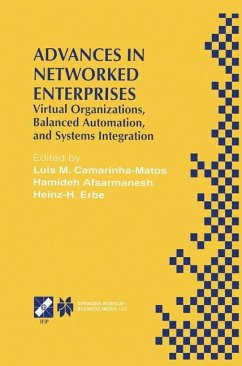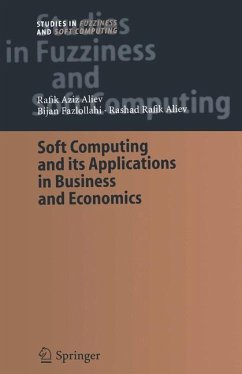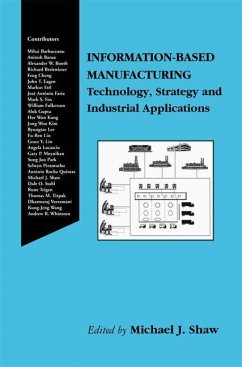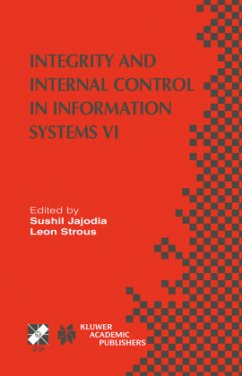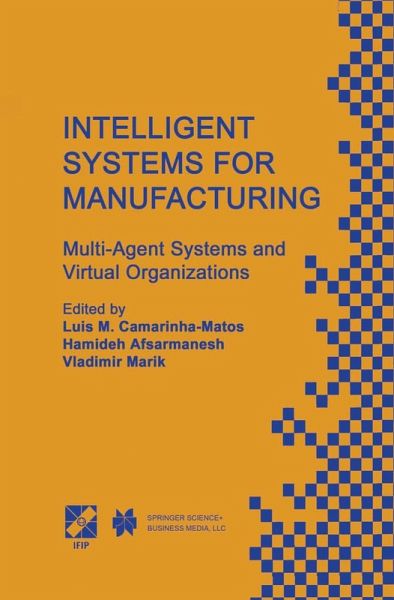
Intelligent Systems for Manufacturing
Multi-Agent Systems and Virtual Organizations Proceedings of the BASYS'98 - 3rd IEEE/IFIP International Conference on Information Technology for BALANCED AUTOMATION SYSTEMS in Manufacturing Prague, Czech Republic, August 1998
Herausgegeben: Camarinha-Matos, Luis M.; Afsarmanesh, Hamideh

PAYBACK Punkte
76 °P sammeln!
Towards Intelligent Manufacturing Systems This book contains the selected articles from the third International Conference on lriformation Technology for Balanced Automation Systems in Manufacturing. A rapid evolution in a number of areas leading to Intelligent Manufacturing Systems has been observ@d in recent years. Significant efforts are being spent on this research area, namely in terms of international cooperative projects, like the IMS initiative, the USA NIIIP (National Industrial Information Infrastructure Protocols) project, or the European ESPRIT programme, and a growing number of co...
Towards Intelligent Manufacturing Systems This book contains the selected articles from the third International Conference on lriformation Technology for Balanced Automation Systems in Manufacturing. A rapid evolution in a number of areas leading to Intelligent Manufacturing Systems has been observ@d in recent years. Significant efforts are being spent on this research area, namely in terms of international cooperative projects, like the IMS initiative, the USA NIIIP (National Industrial Information Infrastructure Protocols) project, or the European ESPRIT programme, and a growing number of conferences and workshops. The importance of the Information and Communication Technologies in the manufacturing area is weIl established today. The proper combination of these areas with the socio-organizational issues, supported by intelligent tools, is however, more difficult to achieve, and fully justifies the need for the BASYS conference and the publication of the series of books on Balanced Automation SyStems. The first book of this series focused on the topic of "Architectures and Design Methods", was published in 1995. Mahy of the fundamental aspects of manufacturing, and some preliminary results were presented in this book. Among others, the topics included: Modeling and design of FMS, Enterprise modeling and organization, Decision support systems in manufacturing, Anthropocentric systems, CAE/CAD/CAM integration, Scheduling systems, Extended enterprises, Multi agent system architecture, Balanced flexibility, Intelligent supervision systems, Shop-floor control, and Computer aided process planning.







